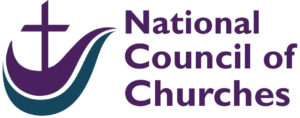by Tony Kireopoulos
But it is my contention that this definition, now used by default by conservatives and liberals alike, is clichéd, and indeed, inaccurate. In fact, to be pro-life is to promote all life. According to my reading of Christianity, to be “pro-life” is to take seriously and expansively the words of Jesus: “I came that they might have life, and have it abundantly” (John 10:10b, NRSV).
Certainly I am not the only Christian to think this way. But I am weary from the attempt to diminish my faith, especially as I think about the ongoing challenges from the Christian right that are certain to come to squelch a more life-enhancing agenda in the months and years ahead. With this in mind, I raise the following questions for those, especially fellow Christians, who would seek to limit the Christian understanding of abundant life.
***
If pro-life:
- might you consider abortion more as a topic about which to preach to convert hearts rather than as a political call to arms; an argument against those who think differently about women’s rights; or a way to avoid the engagement on reproductive education, care, health, and well-being?
- are you incensed at the caging of children, especially those torn apart from their parents, at the border, and do you work to end this form of state-sanctioned torture and child abuse, so that no more lives will be forever ruined by emotional trauma?
- where do you stand on ending mass incarceration and the death penalty, since according to faith all human beings deserve respect, possess the spirit of life, and can be redeemed?
If pro-life:
- do you proudly support charities that aim to end global hunger, eagerly pay taxes that provide food security in our own country, and humbly volunteer in soup kitchens that serve food – and dignity – to the homeless in our local communities?
- can it be assumed that you desire to welcome refugees, the proverbial weary and downtrodden, to our shores, since they come to our country in search of a better life?
- how about renouncing anti-Semitism, Islamophobia, and anti-LGBTQ sentiments, since these and other forms of bigotry, based on a singular religious viewpoint, diminish human flourishing?
If pro-life:
- are you doing all you can to help stop the spread of Covid-19 and the deaths that result from it, and not dismiss expert-recommended precautions, such as wearing masks, social distancing, and frequent hand-washing?
- should you be promoting health insurance for all, since millions of people, including those with pre-existing conditions, depend on it for their survival?
- might you see common sense gun control in terms of health and safety, and as a means to reduce the number of deaths by gun violence, whether self-inflicted or inflicted by some upon others?
If pro-life:
- have you disassociated yourself from others that denigrate the sacrifice of those who were killed and disabled in battle so that others could live in freedom?
- how far along are you in acknowledging that Black Lives Matter, in recognizing the history of people whose forebears were enslaved, disenfranchised, and oppressed over the last 400 years in this country, and in endorsing policy changes that lift up those still put down by systemic racism?
- what do you do with the scientific evidence that the earth is under-going climate change, which threatens the lives of millions, if not billions, of people, to say nothing of the life-sustaining planet itself?
***
In the end, these questions aren’t meant as a call to end debate, in constructive and respectful engagement, on any or all of the above issues, or on the policy choices that seek to address them. But by raising them, I do mean to call an end to the diminishment of our common faith in terms of what it means to be in favor of life by limiting it to one perspective on one issue rather than to consider expanding one’s view to include all that makes for an abundant life.
As Jesus said, “I came that they might have life, and have it abundantly” (John 10:10b, NRSV). I would urge my fellow Christians on the religious right to meditate on what it means to follow in these footsteps.
About this blog: The views and opinions expressed in this blog are solely those of the original author and were prepared in the author’s personal capacity. These views and opinions do not represent those of the National Council of Churches of Christ in the USA, its member communions, or any other contributors to this site.




No comments:
Post a Comment